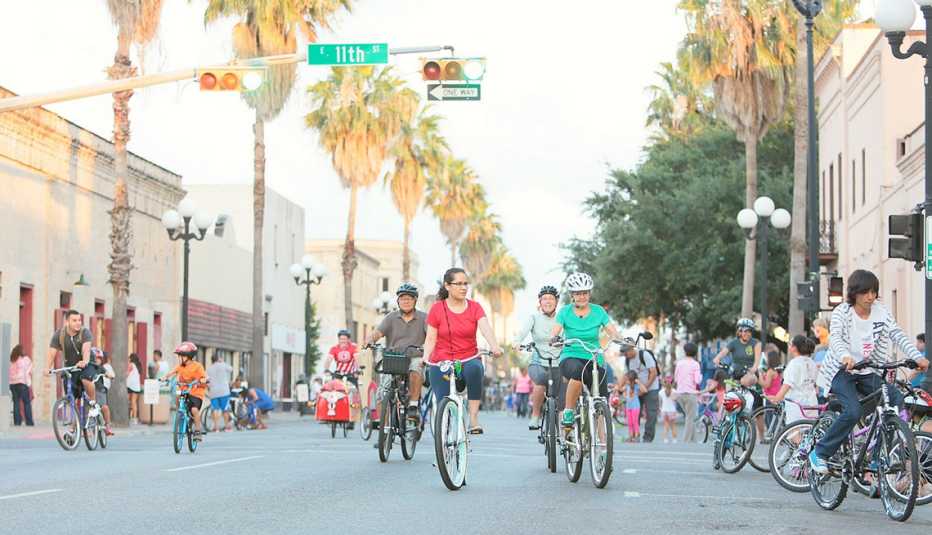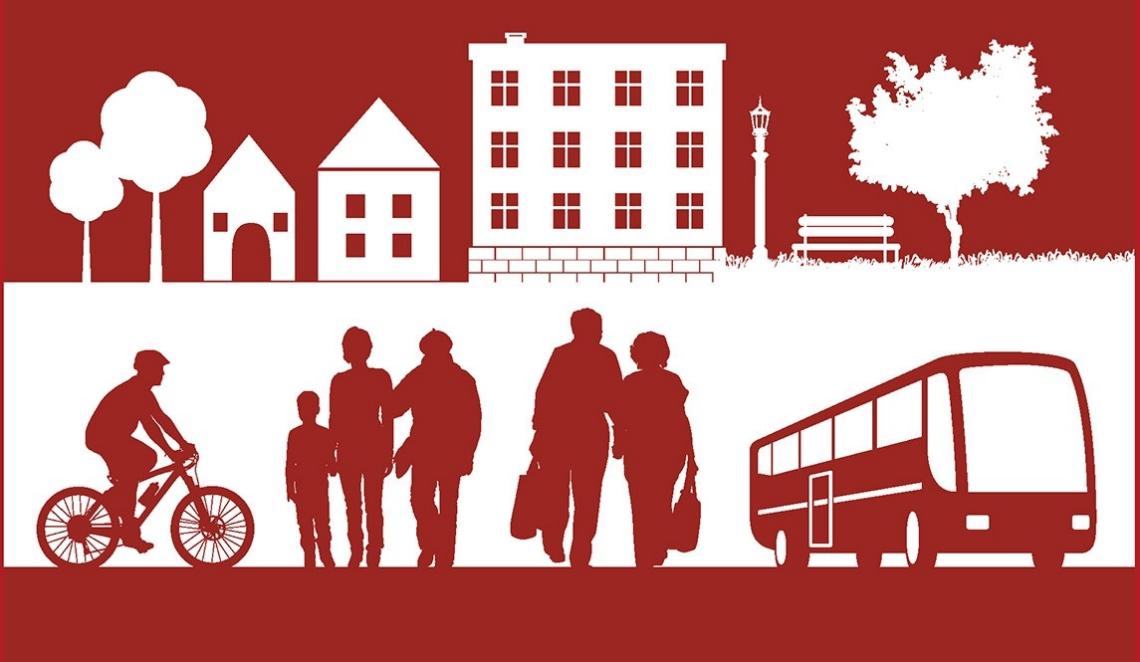AARP Hearing Center
Brownsville Cyclobia
Brownsville, Texas


At least four times a year, miles of streets in downtown Brownsville, Texas, are closed to cars and trucks so residents (and, increasingly, visitors) can gather to bike, walk, jog, dance, socialize and simply have fun.
The recurring city-sponsored event is inspired by the ciclovias — or open streets events — that have long, successful histories in cities including Bogotá, Colombia, and Guadalajara, Mexico.
8 Domains of Livability
The Brownsville CycloBia is an example of work being done in:
- Domain 4: Social Participation
As well as in:
- Domain 1: Outdoor Spaces and Buildings
- Domain 2: Transportation
- Domain 7: Communication and Information
- Domain 8: Community and Health Services
In Brownsville, a city of 175,000 along the United States-Mexico border, the "CycloBia" (spelled with a "B" for Brownsville) serves two important needs: The first is to improve the collective health of the city's residents, a high proportion of whom are poor, obese and struggling with diabetes. The second is to enhance the city's overall sense of community.
"Our CycloBia gets people off the couch and out and about being active. It stimulates the economy, it's fun and — best of all for the participants — it's free!" explains Rose Gowen, a Brownsville physician and elected city commissioner.
The Details
The Brownsville CycloBia is organized by the city's Department of Public Health in collaboration with local businesses, service agencies and nonprofits. The city police and traffic departments assist with road closures and security and more than 50 volunteers help before and during the event. "This is truly a city collaboration," says Kendra Stine, wellness manager for the City of Brownsville.
To avoid the summer heat, a few of the CycloBias are held in the evening. (The daytime events typically run from noon to 5 p.m.) Free bike rentals are available for the many residents who do not own bicycles.
Three or four "reclovias," or recreation stations, located along the route offer fun and helpful services ranging from bike repair and refreshments to Zumba sessions, face painting and educational kiosks.
The Costs
The Brownsville CycloBia is a free event that's financed by the city as well as by grants, donations and in-kind services. The main expenses are for advertising, promotional items, logistical support (administrative staff, security, trash collection, traffic management) and rented facilities, such as portable restrooms.
The Results
The first Brownsville CycloBia was held in the fall of 2012 and welcomed 4,000 people. Since then, each event has attracted more than 10,000 participants.
Before the CycloBia, "many people in Brownsville did not have bicycles or did not know how to ride a bike," says Art Rodriguez, the city's director of public health. "Those who could ride a bicycle mostly did so as a means of transportation, not for enjoyment and physical activity."
Seven out of 10 CycloBia participants surveyed by the city revealed that if they weren't at the CycloBia, they probably would have been involved in a sedentary activity. (A follow-up survey indicated that 45 percent of returning attendees increased their weekly physical activity as a result of their CycloBia participation.)
Another local benefit, according to Dr. Gowen, is that "downtown merchants and restaurants along the route have seen substantially higher sales receipts on CycloBia days and nights."
Brownsville's CycloBia has paid off in other ways: In 2014, the event helped the city win both the National Civic League All-America City Award and the Robert Wood Johnson Culture of Health Prize.
Related Resources
- How to Host a Ciclovia or Open Streets Program
- 5 Questions for Dr. Rose Gowen
- 5 Questions for Ciclovia/Open Streets Pioneer Gil Penalosa
Published August 2015




























































